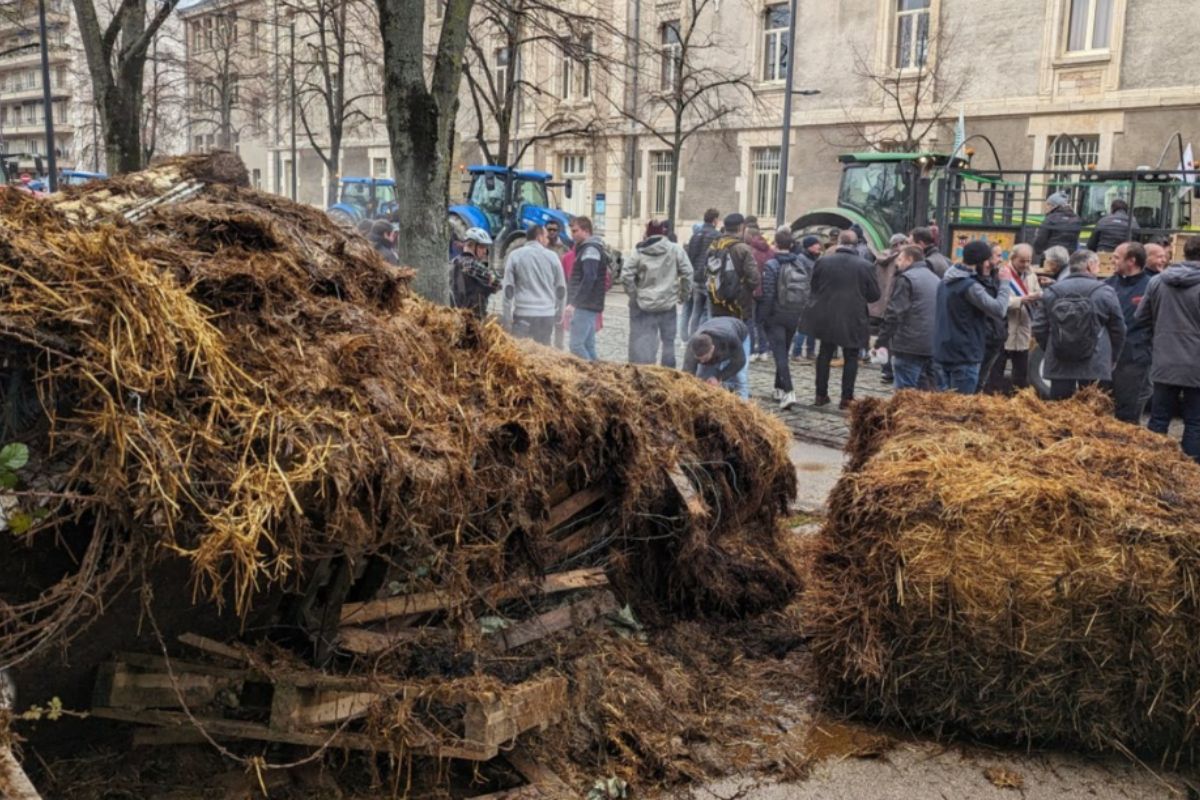NEW DELHI: In a defiant display of discontent, French farmers have blockaded major highways leading to Paris, bringing attention to a myriad of issues that have fuelled their frustrations. Despite recent government measures, the agricultural producers are resolute in their demands for fair compensation and relief from what they perceive as stifling environmental regulations. As the European Union’s leading agricultural producer, the grievances of French farmers resonate across the continent.
At the heart of the protest is the farmers’ assertion that they are not being adequately compensated for their labour, with the cost of production outweighing their earnings. The government’s efforts to curb food inflation, coupled with pressure from retailers, have left many farmers struggling to cover escalating costs for energy, fertilisers, and transportation.
Also Read: Could mounting Ethiopia-Somalia tensions trigger unrest in Horn of Africa?
Adding fuel to the fire is the influx of imports, particularly from Ukraine, which has benefited from the EU’s waiver of quotas and duties following Russia’s invasion. Moreover, ongoing negotiations for a trade deal between the EU and the South American bloc Mercosur have sparked concerns about unfair competition in crucial sectors like sugar, grain, and meat. French farmers argue that these imports not only depress European prices but also fail to meet the environmental standards imposed on EU producers.
The complex nature of EU subsidy rules has also drawn the ire of farmers, with the incoming requirement to leave 4 per cent of farmland fallow raising concerns about the practicality and impact on productivity. The perceived overcomplication of EU policies, such as the restoration of hedges, further adds to the frustration, as farmers believe it hinders their ability to efficiently implement necessary changes.
Also Read: Sweden braces for unthinkable as Russian storm gathers on horizon
Environmental concerns, particularly in the context of green policies, have triggered discontent among French farmers who feel caught between the need to address ecological issues and the imperative to enhance self-sufficiency in the aftermath of Russia’s invasion of Ukraine. Irrigation projects, debates over animal welfare, and pesticide use have exacerbated tensions, leaving an aging farming population feeling overlooked by society.
In response to the protests, French Prime Minister Gabriel Attal announced the scrapping of diesel tax increases for farmers on January 26, along with measures to reduce red tape and additional aid for those affected by cattle disease in the south. However, the government’s moves have received mixed reactions, prompting farmers’ unions to call for continued protests.
Also Read: Dangers of downplaying Houthi menace in Red Sea
As the government seeks to defuse the crisis ahead of European elections in June and the annual Paris farm show in late February, further measures are expected. Support for struggling wine producers and additional aid for livestock are being considered, with French Agriculture Minister Marc Fesneau advocating for measures to prevent destabilisation of EU markets by imports from Ukraine.
The broader European landscape is not immune to agricultural unrest, as farmers in Belgium disrupted traffic around Brussels, while Germany and Romania faced their own bouts of tension over tax breaks and business costs.
Also Read: Explained | How true is South Africa’s genocide claim against Israel in Gaza war?

